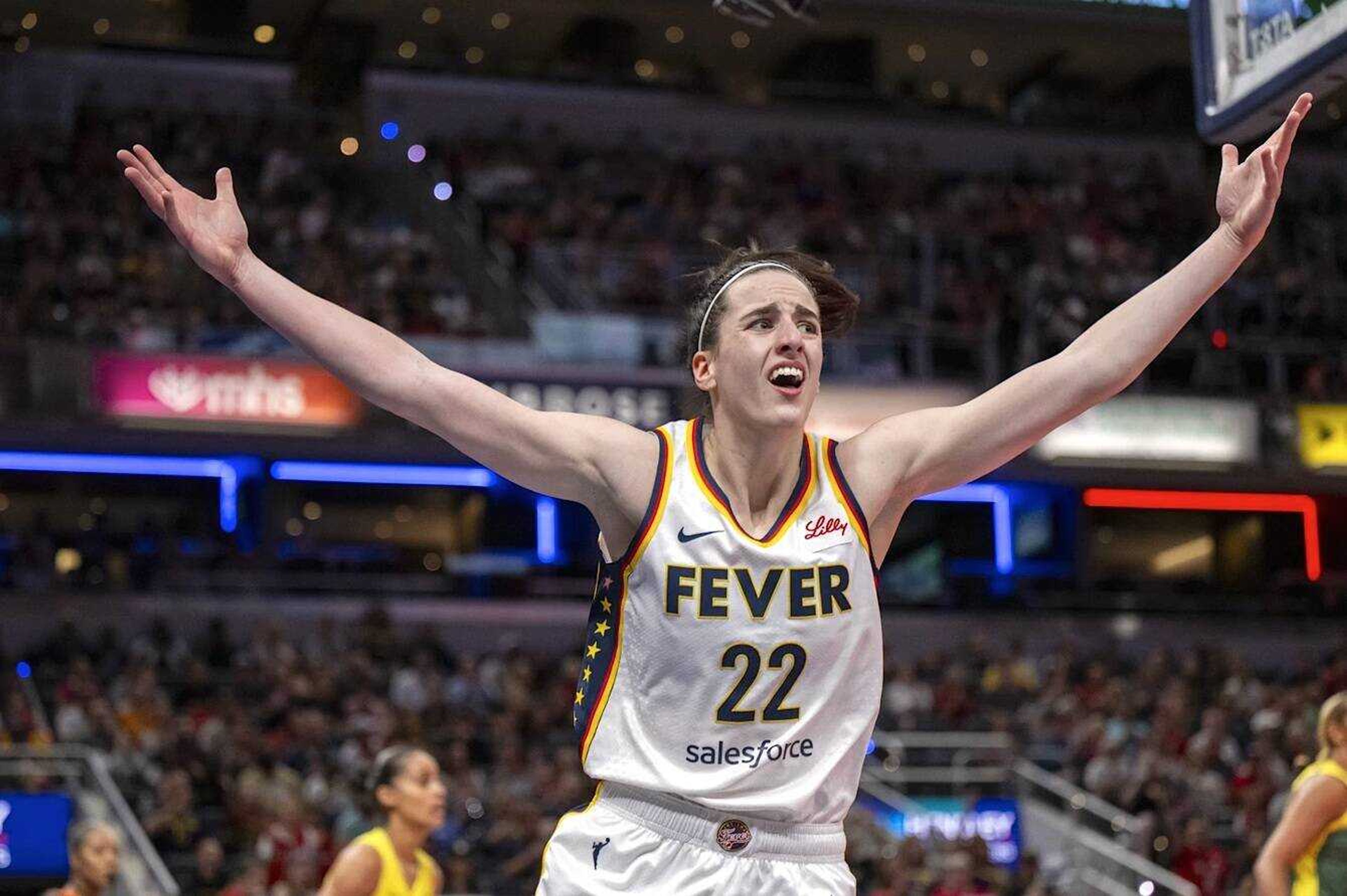COLUMN: Catalin Clark is women's basketball's protagonist whether she likes it or not
As I write this column, it's only fair that I say on the front end that I don't follow the WNBA, mainly because basketball isn't my favorite sport. However, as a stark observer of the national zeitgeist, I have noticed in the two years in which women's basketball has become a popular sport, with television ratings topping the men in the NCAA Tournament and the summer in which the WNBA is enjoying unprecedented media coverage, Indiana Fever rookie Catalin Clark of Iowa represents the constant throughline.. ...
As I write this column, it's only fair that I say on the front end that I don't follow the WNBA, mainly because basketball isn't my favorite sport.
However, as a stark observer of the national zeitgeist, I have noticed in the two years in which women's basketball has become a popular sport, with television ratings topping the men in the NCAA Tournament and the summer in which the WNBA is enjoying unprecedented media coverage, Indiana Fever rookie Catalin Clark of Iowa represents the constant throughline.
Clark was the focal point even when Angel Reese defeated her and won LSU the 2023 national championship. She continued to be the focus of the entirety of this past season as she set NCAA scoring records and made another run to the national championship game, only to lose to an undefeated, yet somehow anonymous, South Carolina team.
Much like college, Clark is seen as the protagonist of the WNBA, the singular hero that will make the Fever a title contender again and bring the league's popularity to uncharted heights.
However, like most role-playing games, it's a slow rise to the top. While she is leading the Fever in points (15.6), assists (6.4), and steals (1.3), her team is still at the bottom of the standings at 2-9.
As the first steps of this journey are shown to be the toughest of all, what we're seeing is the clash between the reason why every casual is watching and the legends who are still playing and would be damned if they find themselves on the losing end of Clark's rise.
So when a physical league acts physical and Clark gets fouled by opponents who are daring her to earn her place in the hardest way possible the national discussion around her gets turned up a tad too far. It doesn't help that the foul in question was during a Fever game against Angel Reese and the Chicago Sky.
Fox News has its political schtick. The only time the network's hosts talk sports is to protect the athletes who align (or at least appear) with their political bent or to respond to what their TV rivals say for an easy segment. Half of the topics on Fox News shows are responses to what people on networks say.
Same with former Fox personality Megyn Kelly. Not once in her mission to become the modern-day Rush Limbaugh has she brought up a sports topic without the purpose of launching her constant criticisms toward the other side.
Because you can't play the game without scoring some points.
That naturally clashes with the diverse hosts on ESPN and the rest of mainstream television trying to figure out why Clark is the source of everyone's interest yet the on-court target from those who have long played in a league that Outkick's Clay Travis described as "a Black lesbian league."
It's the usual tug-a-war between right-wing media insinuating nothing involving white athletes is a matter of race and liberal-minded hosts saying it is a part of the equation.
"The discussion about Caitlin Clark has to deal with – and I mean initially and loudly – race. Race and culture in America. That’s part of this. And basketball is the place where it’s more often discussed historically,” longtime sports journalist and ESPN host Michael Wilbon said Monday on Pardon the Interruption.
Speaking of ESPN, basketball analyst Monica McNutt was right to call out Stephen A. Smith for trying to take credit for covering women's sports this year when it could have easily been a topic during previous summers. I mean, it's not like they talk about baseball or the NHL playoffs at this time of the year.
Colin Cowherd of Fox Sports, however, owns up to his limited taste in topics and said on Tuesday he didn't talk about the WNBA until now because it wasn't popular then.
He was right to point out how oddly difficult it has been for the media to cover women's basketball. It's not like they haven't been watching basketball forever before this summer.
Hell, the IndyStar's top sports columnist couldn't make it through one press conference without having to agree not to cover the Fever in person.
“I love the fact as (the WNBA) explodes, and nobody in the media quite knows how to handle it, mostly guys," Cowherd said.
For better or worse, Clark and Reese are the modern-day women's version of Bird and Magic. As we all watch Clark's rise to the top as the sport's protagonist, whether or not she asked for it, the amount of antagonists, both on the court and in front of the camera, will pile on.
Connect with the Southeast Missourian Newsroom:
For corrections to this story or other insights for the editor, click here. To submit a letter to the editor, click here. To learn about the Southeast Missourian’s AI Policy, click here.









